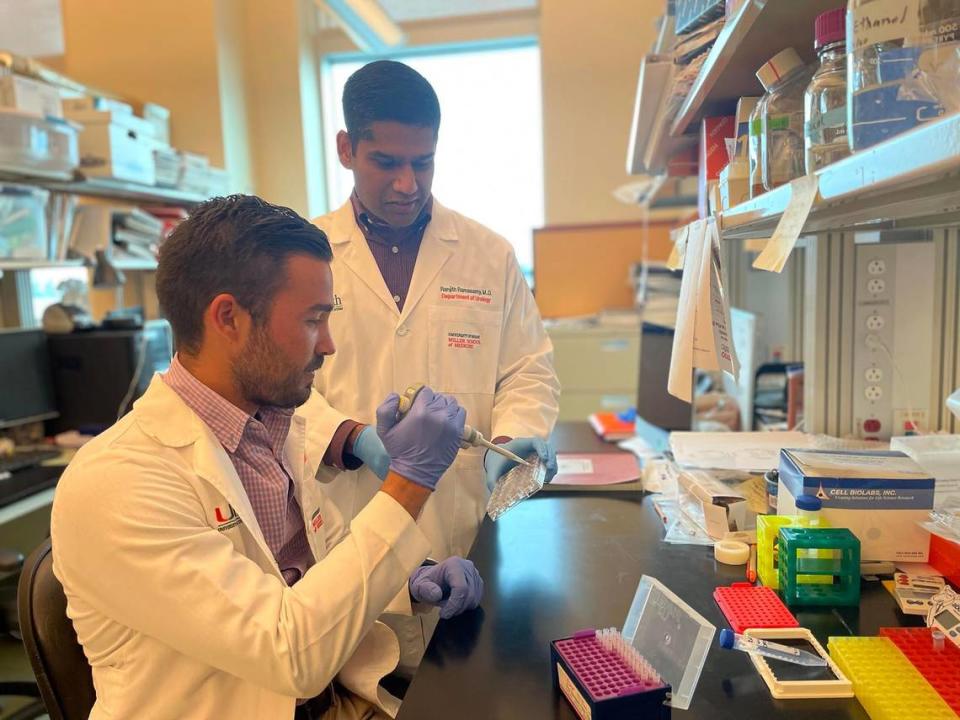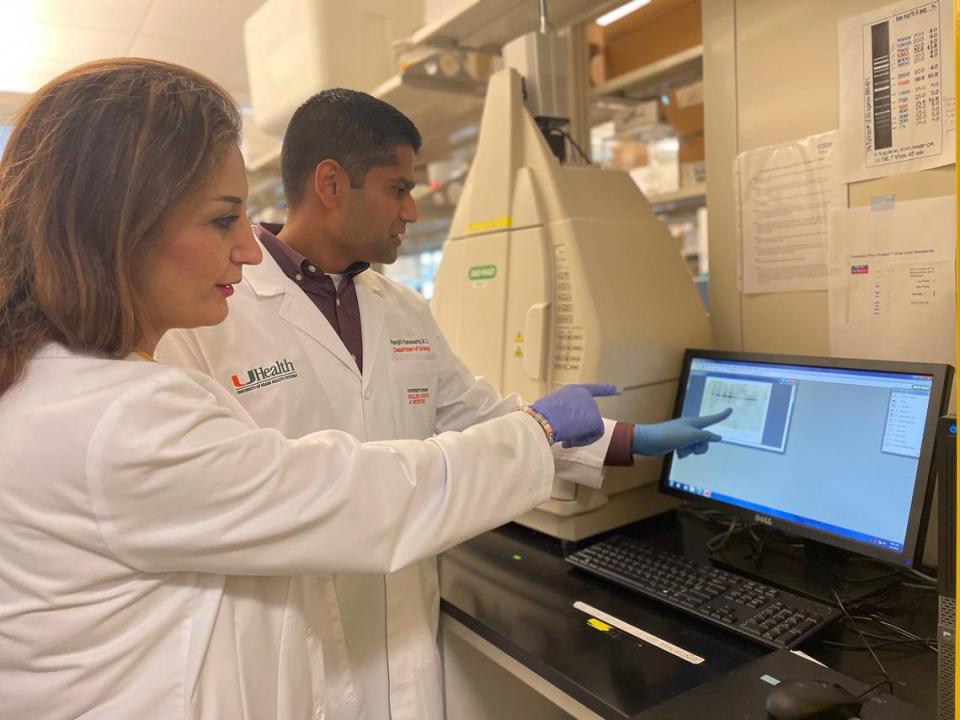Pfizer and Moderna’s COVID vaccines do not affect male fertility, new UM study says
Pfizer and Moderna’s COVID-19 vaccines do not affect male fertility and should not impact men’s ability to have a family in the future, according to a new University of Miami Miller School of Medicine study.
The original clinical trials by Pfizer and Moderna did not evaluate the vaccines for reproductive toxicity, said Dr. Ranjith Ramasamy, associate professor and director of UM’s reproductive urology program, and the principal lead investigator of the study. Instead, those trials focused on whether the vaccines would be effective against COVID-19.
Ramasamy’s previous research found that the COVID-19 virus can affect male fertility and possibly cause erectile dysfunction.
But, because Pfizer and Moderna’s vaccines do not carry the live virus and cannot give people COVID, Ramasamy’s team believed the shots would not impair fertility. The Centers for Disease Control and Prevention has found no evidence that the vaccines can cause female or male fertility problems.
Yet, fertility concerns have become “one of the biggest reasons for vaccine hesitancy,” Ramasamy said. The CDC has said the vaccines are safe for women and men who are trying to conceive.
Ramasamy and his team analyzed the sperm of men before and after they were vaccinated against COVID-19, as sperm is the most effective way to determine a male’s fertility.
How did UM study COVID vaccine impact on male fertility?

The researchers studied 45 male volunteers between 18 and 35 who were healthy and had no fertility issues. Men selected for the study did not have COVID symptoms or test positive within 90 days of the study’s December start date.
The men provided a semen sample before receiving the first dose of either the Pfizer or Moderna vaccine and then provided another sample about 70 days after the second dose. The study began in December 2020 and ended on April 24, 2021.
While the study did have some limitations, including a small number of men enrolled and a short follow-up period, Ramasamy said the time frame matched the full life cycle of sperm and that 70 days is sufficient time to see if the vaccine had impacted the semen. Researchers then analyzed a variety of variables, including the concentration of sperm and whether the sperm was moving, alive and healthy.
What they found was that Pfizer’s and Moderna’s COVID-19 vaccine did not decrease sperm count, according to the study, even among eight men who had a low sperm count prior to receiving their first vaccine dose.
In fact, seven of those men saw an increase in sperm concentration after getting the vaccine. The study notes that the change might have been a normal statistical variation, possibly caused by increased abstinence prior to the second sample.

There were also no noticeable differences in sperm counts between men who took Pfizer versus Moderna, Ramasamy said.
The study was published last week in JAMA, the peer-reviewed medical journal of the American Medical Association.
A South Florida baby was born with COVID antibodies after mom vaccinated, doctors say
“If you look at vaccine hesitancy data nationwide, the highest vaccine hesitancy is actually among the cohort of young men and women between 18 to 40. So, I’m really hoping that this data will sway some of those vaccine-hesitant people to go and get vaccinated,” said Ramasamy.
He’s also hoping the study will alleviate fears parents might have about letting their children get vaccinated.
The single-dose Johnson & Johnson COVID-19 vaccine was not included in the study because it didn’t become available until months after the study began.
So, what’s next in vaccine research?
Ramasamy now wants to look into how the vaccines impact fertility in women, though he expects the results will be positive, based on the male fertility findings.
“The biggest takeaway is men and their partners thinking about conceiving in the future, wanting to have kids in the future — raising their family — should not be concerned about fertility as a reason for vaccine hesitancy,” he said.
Fact check: COVID vaccines won’t affect teens’ development or fertility, experts say

